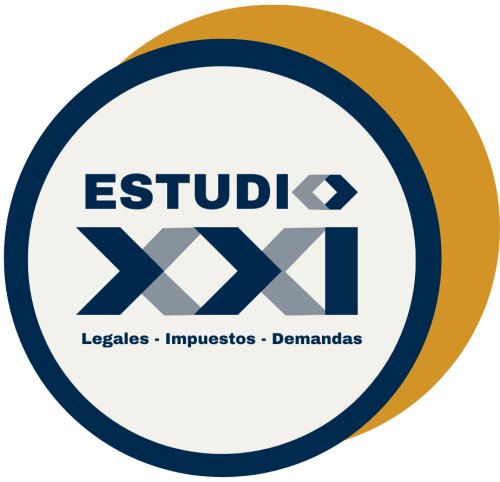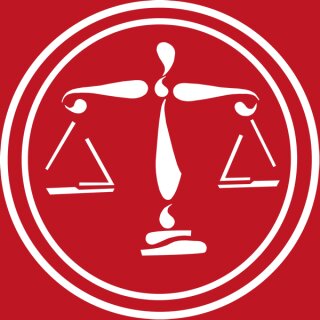Best Adoption Lawyers in Asunción
Share your needs with us, get contacted by law firms.
Free. Takes 2 min.
Free Guide to Hiring a Family Lawyer
List of the best lawyers in Asunción, Paraguay
About Adoption Law in Asunción, Paraguay
Adoption in Asunción, Paraguay is governed by national laws that aim to ensure the well-being and best interests of children. The legal framework is designed to facilitate a smooth adoption process while safeguarding the rights of the adoptive children. Paraguay is a signatory to the Hague Convention on Protection of Children and Co-operation in Respect of Intercountry Adoption, which establishes international standards of practices for adoption. Both domestic and intercountry adoptions are conducted, with strict regulations to prevent child trafficking and exploitation.
Why You May Need a Lawyer
The adoption process in Paraguay involves navigating a complex legal system, understanding intricate paperwork, and ensuring compliance with international conventions. Seeking legal advice can be crucial in the following situations:
- Understanding eligibility requirements for prospective adoptive parents.
- Navigating the process of intercountry adoption, which involves international legal procedures.
- Handling legal documentation and court procedures required for adopting a child in Paraguay.
- Dealing with potential legal challenges or disputes during the adoption process.
- Ensuring compliance with Hague Convention requirements for international adoption.
Local Laws Overview
Paraguay's adoption laws are primarily governed by the Code of Childhood and Adolescence and relevant international treaties. Some key aspects include:
- Adoptive parents must meet certain eligibility criteria, including age requirements and suitability assessments.
- All adoptions must be processed through the central authority for adoption, SENADIS (Secretaría Nacional de la Niñez y la Adolescencia).
- International adoptions must comply with the Hague Convention regulations to ensure the legality and ethicality of the process.
- Adopted children acquire the same rights as biological children in terms of inheritance and family membership.
- Strict consent procedures must be adhered to, ensuring that biological parents' rights are respected.
Frequently Asked Questions
What is the legal age requirement for adoptive parents in Paraguay?
Adoptive parents in Paraguay must be at least 25 years old and at least 15 years older than the child they wish to adopt.
Can single individuals adopt a child in Paraguay?
Yes, single individuals are allowed to adopt in Paraguay, provided they meet the legal requirements and demonstrate the ability to provide a stable and nurturing environment for the child.
Are there any residency requirements for adopting in Paraguay?
Prospective adoptive parents, especially non-nationals, are often required to reside in Paraguay for a period to foster bonding and ensure the adjustment of the child.
How long does the adoption process typically take in Paraguay?
The adoption process can vary, but it typically takes between 12 to 24 months. Intercountry adoptions may require more time due to compliance with international protocols.
What documents are required for the adoption application?
Basic documents include birth certificates, proof of income, police clearances, medical reports, and a home study report. Additional documents may be required based on individual circumstances.
Is it possible to adopt a relative in Paraguay?
Yes, relative adoptions are recognized in Paraguay and follow a similar process to other forms of adoption, emphasizing the child's best interests.
What is the role of SENADIS in the adoption process?
SENADIS is the central adoption authority in Paraguay, overseeing all adoption procedures to ensure compliance with national and international laws.
Are open adoptions allowed in Paraguay?
Open adoptions, where there is contact between the adoptive and biological families, are possible but must be handled with sensitivity and legal oversight to protect all parties' interests.
What support is available post-adoption for adoptive families?
Adoptive families can access post-adoption services, including counseling and support groups, to aid in the transition and integration process.
Can the adoption be annulled under any circumstances?
Adoptions are legally binding; however, under exceptional circumstances, such as fraud or if it's in the child's best interests, legal annulment can be pursued through the courts.
Additional Resources
Several resources can be valuable for anyone seeking legal advice on adoption in Asunción, Paraguay:
- SENADIS (Secretaría Nacional de la Niñez y la Adolescencia): The central authority responsible for all adoption processes.
- Legal Assistance Centers: Provide guidance and support for the adoption process.
- Local NGOs focused on child welfare: Offer resources and assistance related to adoption.
- International Social Service: Provides support and advocacy for cross-border adoption issues.
Next Steps
If you are considering adoption and need legal assistance, consider the following steps:
- Contact a lawyer specializing in family law or adoption to understand your legal rights and the process.
- Reach out to SENADIS for official guidelines and necessary paperwork.
- Attend informational sessions or workshops provided by local adoption agencies or NGOs.
- Prepare and gather necessary documentation required for the adoption process.
- Stay informed about ongoing changes in adoption laws and policies by subscribing to relevant updates from legal advisors or government bodies.
Lawzana helps you find the best lawyers and law firms in Asunción through a curated and pre-screened list of qualified legal professionals. Our platform offers rankings and detailed profiles of attorneys and law firms, allowing you to compare based on practice areas, including Adoption, experience, and client feedback.
Each profile includes a description of the firm's areas of practice, client reviews, team members and partners, year of establishment, spoken languages, office locations, contact information, social media presence, and any published articles or resources. Most firms on our platform speak English and are experienced in both local and international legal matters.
Get a quote from top-rated law firms in Asunción, Paraguay — quickly, securely, and without unnecessary hassle.
Disclaimer:
The information provided on this page is for general informational purposes only and does not constitute legal advice. While we strive to ensure the accuracy and relevance of the content, legal information may change over time, and interpretations of the law can vary. You should always consult with a qualified legal professional for advice specific to your situation.
We disclaim all liability for actions taken or not taken based on the content of this page. If you believe any information is incorrect or outdated, please contact us, and we will review and update it where appropriate.












